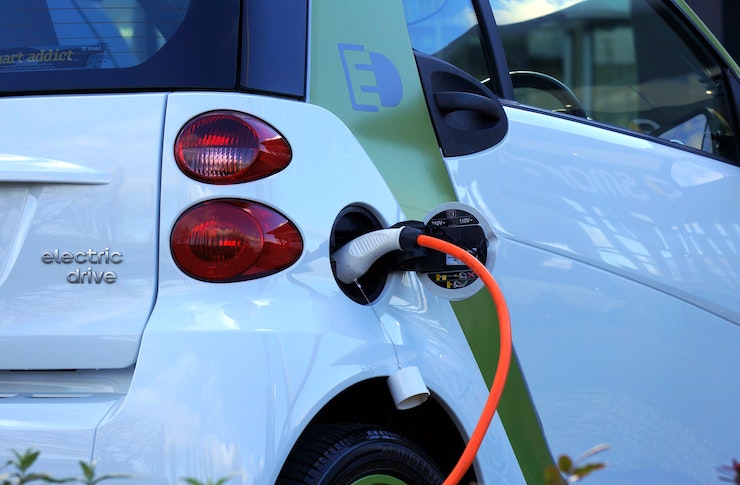Hydrogen-Powered Race Cars: The Future of Motorsport?
Imagine the roar of engines at a Formula 1 race, but instead of the familiar scent of gasoline, there's a faint whisper of water vapor. This isn't science fiction; it's the potential future of motorsport with hydrogen-powered race cars. As the automotive world grapples with environmental concerns, hydrogen fuel cell technology is emerging as a promising solution that could revolutionize both street and track vehicles. But what does this mean for the high-octane world of racing, where performance is paramount?

The Chemistry Behind Hydrogen Power
Hydrogen fuel cell technology harnesses the power of the most abundant element in the universe. At its core, the process involves combining hydrogen with oxygen from the air to produce electricity, with water as the only byproduct. This clean energy source offers the potential for zero-emission vehicles without compromising on performance or range.
In a hydrogen fuel cell vehicle, hydrogen is stored in high-pressure tanks. When power is needed, the hydrogen flows into a fuel cell stack where it undergoes an electrochemical reaction with oxygen. This reaction produces electricity, which then powers electric motors to drive the wheels. The entire process is efficient, quiet, and most importantly for racing, capable of delivering instant torque.
Hydrogen’s Potential in Motorsport
The world of motorsport has always been at the forefront of automotive innovation, and hydrogen power could be the next big leap. Racing series like Le Mans have already begun experimenting with hydrogen-powered prototype vehicles, showcasing the technology’s potential on the track.
One of the most significant advantages of hydrogen in racing is its ability to refuel quickly, much like traditional gasoline-powered cars. This is a crucial factor in endurance racing, where pit stop times can make or break a team’s chances of victory. Additionally, the power-to-weight ratio of hydrogen fuel cells continues to improve, making them increasingly competitive with internal combustion engines.
Challenges on the Track
While the potential of hydrogen in motorsport is exciting, there are still hurdles to overcome. Safety concerns regarding the storage and handling of hydrogen under race conditions need to be addressed. The infrastructure for hydrogen refueling at racetracks is also in its infancy and will require significant investment.
Another challenge lies in the sound – or lack thereof. The distinctive roar of engines is an integral part of the racing experience for many fans. Hydrogen fuel cell vehicles are nearly silent, which could dramatically change the atmosphere at race events. However, this could also open up new possibilities for racing in urban environments where noise pollution is a concern.
Impact on Road Car Development
Motorsport has long been a testing ground for technologies that eventually make their way into road cars. The development of hydrogen-powered race cars could accelerate the advancement of this technology for consumer vehicles. Innovations in fuel cell efficiency, hydrogen storage, and safety systems developed for the extreme conditions of racing would likely trickle down to road-going vehicles.
This symbiotic relationship between race and road could play a crucial role in making hydrogen fuel cell vehicles more practical and affordable for everyday use. As manufacturers invest in hydrogen technology for motorsport, they simultaneously build expertise and economies of scale that benefit consumer applications.
The Environmental Equation
One of the most compelling arguments for hydrogen in motorsport is its potential to dramatically reduce the carbon footprint of racing. While the production of hydrogen itself can still have environmental impacts depending on the method used, the racing itself would produce zero emissions. This could help motorsport maintain its relevance in an increasingly environmentally conscious world.
Moreover, the visibility of hydrogen technology in high-profile racing events could help raise public awareness and acceptance of hydrogen as a viable alternative fuel. This could be instrumental in driving broader adoption of hydrogen fuel cell vehicles beyond the racetrack.
A New Era of Racing Strategy
The introduction of hydrogen power to motorsport could usher in a new era of racing strategy. Teams would need to balance the power output of their fuel cells with energy management over the course of a race. This could lead to fascinating tactical decisions, much like we see in current hybrid racing formulas.
Engineers would face the challenge of optimizing the entire powertrain for maximum efficiency and performance. This includes not just the fuel cell stack, but also the electric motors, power electronics, and cooling systems. The teams that master this complex interplay of systems would likely find themselves at the front of the pack.
The Starting Grid of Tomorrow
As we stand on the brink of this potential hydrogen revolution in motorsport, it’s clear that the landscape of racing could be on the verge of a dramatic shift. The integration of hydrogen fuel cell technology into high-performance vehicles presents both exciting opportunities and significant challenges.
While there are still obstacles to overcome, the promise of clean, high-performance racing is tantalizing. It offers a vision of motorsport that can thrive in an environmentally conscious future without sacrificing the speed, skill, and excitement that fans crave. As hydrogen technology continues to evolve, we may soon see a new generation of race cars taking to the track, writing the next chapter in the storied history of motorsport.




